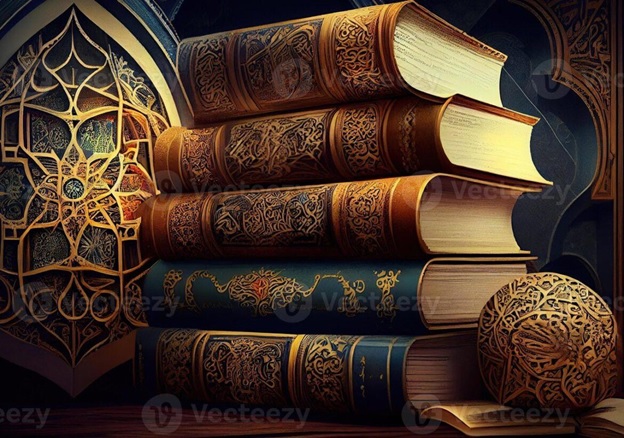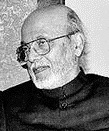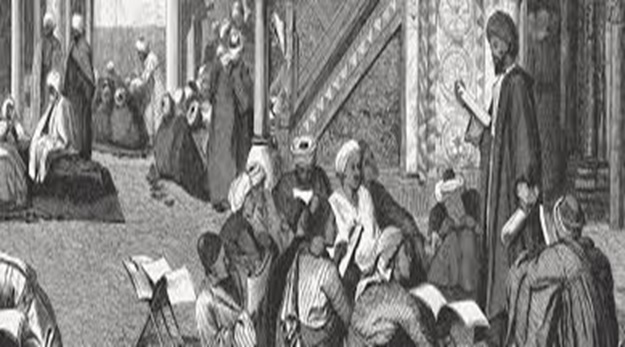
The existential destiny of Islamic civilization is with the individual. Every Muslim is a potential Mujaddid of the next millennia. Imagine a world illuminated by a billion points of light. This is a paradigm shift. It is a compulsion of modern history
The Individual – Mujaddid of the Next Millennia
By Dr Nazeer Ahmed
Concord, CA

Civilizations are like stars in the heavens. They are born, shine with brilliance and then die out. Is the Islamic civilization on this track?
We live in extraordinary times. Humankind stands at a bend in history that may well decide its destiny on earth. Artificial intelligence has overpowered human intelligence. Wars are fought not by soldiers but by robots and drones that are devoid of compassion or mercy. Man has conquered space but the specter of climate change and atomic war haunts humankind here at home. The world is in a flux with some civilizations on the rise, others in decline
Forces of economic centration rule the world. The system churns out billionaires by the dozen, but millions go to bed hungry every night. The top one percent owns more than fifty percent of the wealth of the globe. Billions struggle not to slide down the greasy pole into abject poverty. Even the basic needs of food, shelter, security and meaningful work are beyond the reach of billions.
Concomitant with economic centration is the rise of right-wing authoritarianism. As states arrogate more power to themselves, the individual is continually marginalized, with even the right to protest taken away from him. Global hegemonic powers encourage, cultivate and sustain these trends as they are in sync with their own vision of a top-down world order. There is no countervailing power to restrain the hegemons. Efforts at correcting this course of history are mercilessly crushed.
The world of Islam is caught up in the turbulence of these galactic changes and is tossed up and down like a cork in a mighty river. A crescent of destruction stretches from Afghanistan, Iraq, Syria, the Sudan, the Horn of Africa to Libya and beyond.
The situation is not new. It has been an inexorable process since 1684 when the Ottomans retreated from Vienna while Aurangzeb promulgated his Futuwat and changed the direction of Islamic civilization from Taqwa to Fatwa. It is instructive to remember that it was circa 1684 that Sir Isaac Newton published his Laws of Motion and propelled the Western world into the modern scientific age. Far from influencing the flow of history, no Muslim nation is even invited to the table while the hegemons carve up the world into spheres of influence. The Sykes-Picot agreement of 1916 was not the only example; it has happened, time and again.
The reasons for this dismal state are both external and internal. Since the Napoleonic wars (1798-1815), the Western powers have acted in unison, first to dismember the Ottoman empire and then to carve up Asia and Africa into their colonial empires. The modern hegemons actively work to prevent the emergence of any competing power or a combination of powers, Muslim or non-Muslim that could challenge them. The decimation of the Iraqi industrial base (2003-2007) is a case in point.
The external powers would not be successful if the Muslims were not so divided among themselves. The Islamic world shows every sign of moral exhaustion at the corporate and state level. It shows up as corruption at every level. Demagogues rule. Dissent is silenced. Mediocracy prevails. Education is sterile and stagnant. Critical thinking absent. Innovation zero. Institutions dead. Economics subservient. State after state a basket case. Ijtihad bogged down in minutia such as the length of the beard. The mullah, the bureaucrat, the politician are all beholden to the glitter of gold, ready to mortgage themselves and their countries to the highest bidder.
Many are the attempts that have been made over the last two hundred years to arrest this decline. The Ottoman Tanzeemat (1839-1876) were the first attempt. Iran witnessed the Revolutions of 1906 and 1979. Iqbal’s writings led to the creation of Pakistan. Mohammed Abduh of Egypt, Jamaluddin al Afghani, Maududi and Zia Gokalp were notable reformers. However, success was limited because the human material to sustain them was absent.
You cannot build a Taj Mahal with sand. You need marble to build a Taj Mahal. Corrupt individuals cannot build a pious society. Only pious individuals, working together, can build a pious community “enjoining what is good, forbidding what is evil and believing in God.”
Copying Western ideologies has been a grand failure. Muslims have tried capitalism, communism, socialism, nationalism, Arabism, Baathism and hybrids thereof. None succeeded. The Islamic body politic could not digest alien ideas that had no roots in its own intellectual landscape. This has been true since the days of the Mu’tazalites in the eighth century.
So, people ask: what should we do in these turbulent and uncertain times to avoid the fate of civilizations that have disappeared?
The Qur’an has answered this question: “Throughout time, humankind is at a loss except such as those who have faith, engage in righteous action and work together for justice and reinforce one another with patience and constancy”. Mevlana Rumi answered this question thus: “Yesterday, I was smart, and I wanted to change the world. Today, I am wise, and I decided to change myself”. This advice is as valid today as it was eight hundred years ago. Allah does not change the condition of a people until they change what is within themselves.
It is a recurring theme in Islamic history that at the end of each millennia there is renewal. The next renewal of Islamic civilization is unlikely to come from Casablanca or Karachi. It is unlikely to come from a superman. It is going to come from the individual, namely, YOU! Its basis is the Qur’an and the Seerah of the Prophet . I paraphrase this thesis with the acronym SeeC, that is S…e…e…C, the S stands for spirituality, the first e is for education, the second e for economics and the C is for cooperation.
Spirituality connotes Iman, Adl and Ehsan. Iman (Faith) starts with Taqwa and finds its expression in Ehsan. Worship is its essence, excellence in service is its methodology. An unceasing struggle for Al Haqq (Truth, Justice) is its process. As a search for the Truth, it finds its expression in science and culture. As a struggle for justice, it finds its expression in public life.

Image Yaqeen Institute
The basis of civilizational renewal is individual transformation. Taqwa is a first step in this process. What is Taqwa? Taqwa is something like rocket science. Just as you build a light shield in a space telescope to keep straylight out and focus on the light of a distant star, taqwa is a shield to keep away all the distractions of the world and focus on the light from Allah. With the Divine light comes tranquility of heart, peace of mind and awareness of the Asma ul Husna, the most beautiful Names and Attributes of Allah. That is why Taqwa is often translated as God-consciousness or simply as piety.
Taqwa is a priceless jewel from the treasure house of Divine Grace. Its purpose is the transformation of the Self so that it becomes a reflector of divine light. It applies to the individual, the family, the community, the nation and the world. It is the garment for the people of paradise, the shield of the Awliya, the ladder of the believer and the goal of the visionary.
Every human occupies a unique position in the grand architecture of Divine purpose. Every human is a streak of light across the canvas of human history. Write on this canvas with the light of Taqwa.
Build your families on a foundation of Taqwa. The family is the foundation of a civilization. When the family falls apart, a civilization crumbles. That is the crisis of the modern man.
Most important is the application of Taqwa to economics. What drives the modern global civilization is economics. The farmer, the merchant, the teacher, the preacher, the employee and the employer are all beholden to the money lender. The issue is global, and it transcends the Islamic world. It is a difficult issue.
What is a Muslim family to do in the face of such galactic forces of centration? Start with good economics at home. Inculcate taqwa. Practice moderation. Avoid consumption debt. Choose whose products you buy and who you give your money to. Encourage Muslims to enter business. Establish circles of Muslim-owned businesses in each community. Help one another with good business counsel and shared experience. Save and invest wisely. That is Taqwa. In addition to a good education, guide the youth on how to navigate a fast-changing technological world driven by Artificial Intelligence.
The existential destiny of Islamic civilization is with the individual. Every Muslim is a potential Mujaddid of the next millennia. Imagine a world illuminated by a billion points of light. This is a paradigm shift. It is a compulsion of modern history.
Excel in knowledge. Practice sound economics with taqwa. Build bridges of cooperation with trustworthy individuals and communities on the basis of Ehsan.
Every human occupies a unique position in the grand architecture of divine purpose. Every human is a streak of light across the canvas of human history. Write on this canvas with the light of Iman, A’dl and Ehsan.

